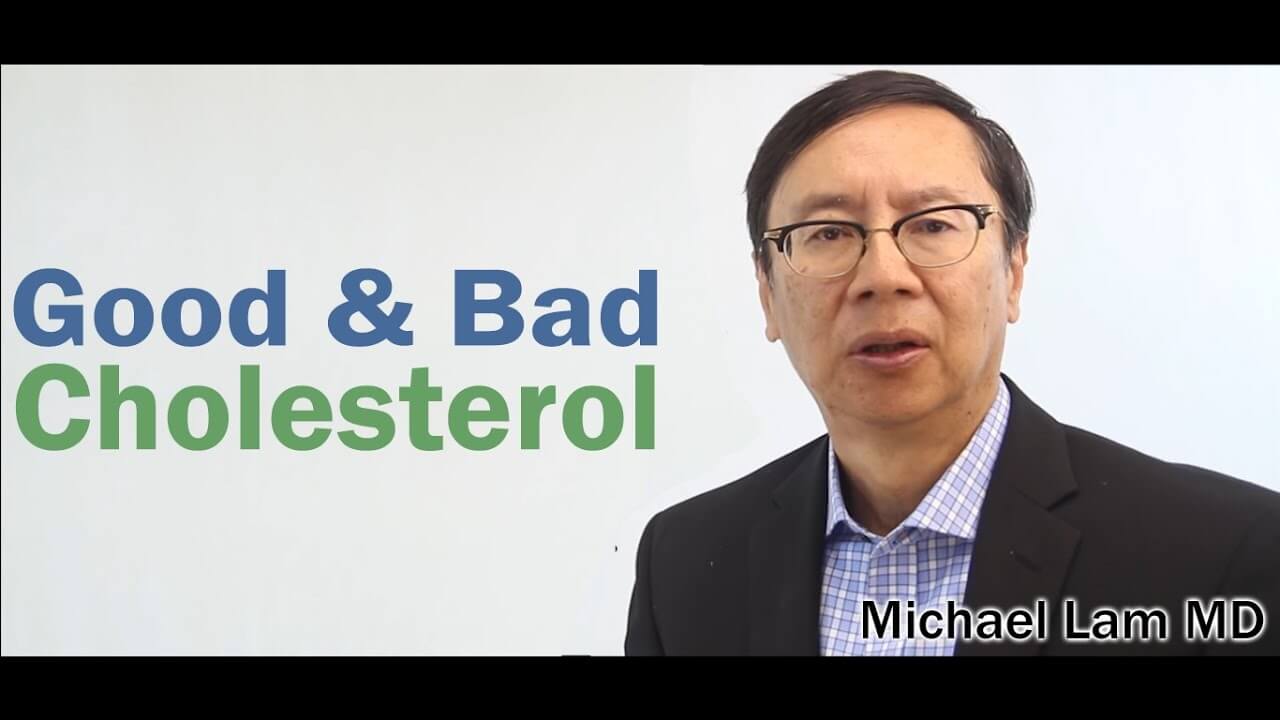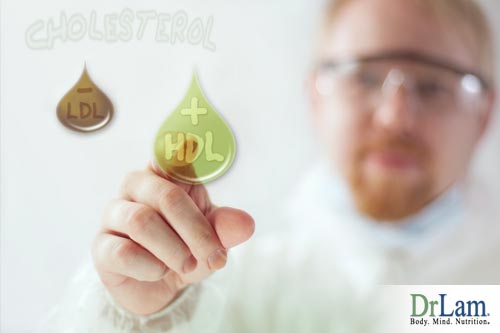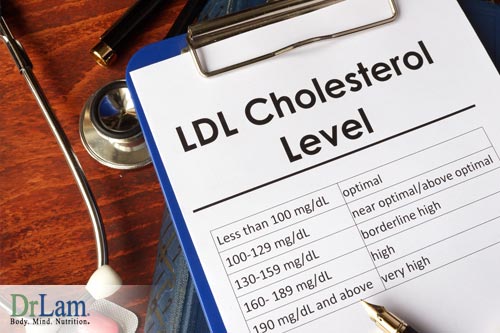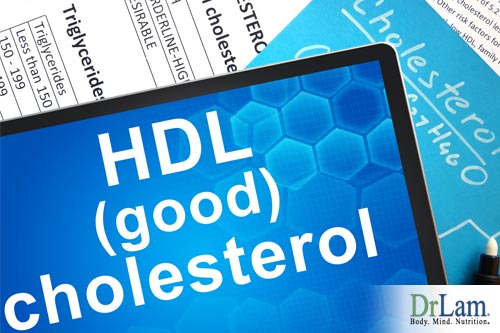
 Cholesterol is an essential element and a main building block of every cell membrane in our bodies. It’s not only consumed through foods but our bodies actually produce it on their own as well. There are many questions regarding cholesterol. How much should I consume? How does it affect my body? What is the difference between bad and good cholesterol?
Cholesterol is an essential element and a main building block of every cell membrane in our bodies. It’s not only consumed through foods but our bodies actually produce it on their own as well. There are many questions regarding cholesterol. How much should I consume? How does it affect my body? What is the difference between bad and good cholesterol?
There are many opinions, even among clinical professionals as to why some people are affected differently than others regarding the negative effects of cholesterol. However, almost all agree that bad and good cholesterol intake should be kept within certain levels to decrease the likelihood of health complications.
It’s a little more complicated than “bad and good cholesterol” but generally speaking, the following is how it works. There are two categories in which cholesterol is classified. The first of these is low-density lipoprotein (LDL), and the second is high-density lipoprotein (HDL). The most basic explanation of LDL cholesterol, according to the American Heart Association, is that it’s bad because it’s thick, hard, and contributes to plaque. If plaque builds up in the arteries and a clot forms, the already narrowed artery can become blocked, leading to a heart attack or stroke.
HDL is considered the good type of cholesterol in part because it helps to remove LDL cholesterol from the arteries. Because of this, HDL cholesterol contributes to a healthy cardiovascular system and it is an encouraged aspect of a proper diet.
We have already briefly discussed the fact that our bodies manufacture their own cholesterol so we will focus on ingestible cholesterol for the remainder of this article. Most ingested cholesterol is what’s known as “esterified”. When this happens it means that the cholesterol is poorly absorbed. The way the
body counteracts the absorption of additional cholesterol is by reducing cholesterol synthesis; the process by which the body creates its own supply of cholesterol.
Cholesterol composes a substantial portion of cell membranes. It is required for healthy cell creation, function, and balances membrane fluidity when we have physical temperature changes. Within cell membranes, cholesterol transports essential signals. Cholesterol also increases the speed at which signals are sent through cells.
There are several molecules and hormones for which bad and good cholesterol contributes to their creation including: all steroid hormones, adrenal gland hormones, and sex hormones. This is vitally important because without proper hormone production, our bodies cannot respond to natural stimuli in the way that they are meant to, resulting in imbalance and the possibility of negative symptoms.
LDL particles enter the blood and there they become oxidized by free radicals. This is a problem because once they become oxidized; there is then a strong correlation between oxidative stress and cardiovascular health issues. Because of this, some experts argue that increasing antioxidant intake can help to mitigate the prevalence of free radicals and thus decrease the oxidation rate of LDL cholesterol. There is a reasonably conclusive case to support this, but it is yet to be proven in clinical tests.
 HDL cholesterol –because of its ability to transport fat molecules out of the arterial walls – is touted as one of the solutions to lowering the effects of LDL consumption. This is interesting because there have been medications created that increase HDL cholesterol levels and none of them have been proven to improve health in trial subjects. There is some good news for women when it comes to HDL cholesterol as women have been shown to have higher levels of HDL on average. Women also have fewer cardiovascular related health issues when compared to men. This is good news for women, but it by no means gives anyone a free pass to ignore their cholesterol intake. Everyone should be aware of their intake of bad and good cholesterol.
HDL cholesterol –because of its ability to transport fat molecules out of the arterial walls – is touted as one of the solutions to lowering the effects of LDL consumption. This is interesting because there have been medications created that increase HDL cholesterol levels and none of them have been proven to improve health in trial subjects. There is some good news for women when it comes to HDL cholesterol as women have been shown to have higher levels of HDL on average. Women also have fewer cardiovascular related health issues when compared to men. This is good news for women, but it by no means gives anyone a free pass to ignore their cholesterol intake. Everyone should be aware of their intake of bad and good cholesterol.
One of the worrisome aspects of high blood cholesterol levels can be because it is often asymptomatic – meaning that one does not necessarily know that they have it because there are no symptoms. There is a gene on the nineteenth chromosome called LDLR which controls the production of cholesterol receptor sites. There are certain inherited mutations of the LDLR gene that affect how these cholesterol receptors develop by either changing their structure or prevalence. Because of this mutation, LDL cholesterol is left to circulate in the blood instead of being absorbed. When someone has high levels of cholesterol they are at increased risk for heart attack and stroke because of plaque accumulation.
What all of this means is that even though there are both bad and good cholesterol and you can control your intake, if you are attempting to gauge your probability of experiencing cardiovascular health problems – it also depends on your inherited genetics. Just because you have a healthy and balanced diet doesn’t guarantee that you won’t have issues with your heart. Being that this is such a common affliction – the number one cause of death in the United States – it is important to have your physician monitor and test your blood cholesterol levels on a regular basis.
Some of this information might strike you as somewhat concerning and even scary, but it’s important to be aware of the contributing risk factors that cholesterol absorption and genetics play in relation to cardiovascular health. There are some very telling statistics that indicate the role that genetics have.
Approximately fifty percent of males who inherit a genetic mutation of LDLR will develop heart complications before the age of fifty and all male children of this parent will develop heart complications by the age of seventy. These are simply mind blowing numbers.
There are now tests to help discover how much plaque you have accumulated in your arteries, so that you can monitor it over time. These types of tests need to be done if your family has a history of heart attacks or other cardiovascular ailments so that you can take preventative action to preemptively combat your susceptibilities.
 Stress is something that everyone has to deal with unfortunately. Most people have to juggle the responsibility of children, work, house maintenance, extended family, and seemingly endless other things in their lives. This isn’t easy for any of us and can have a very negative impact on our bodies over time. One more reason it is necessary to maintain a healthy stress response in order to cope properly with daily life.
Stress is something that everyone has to deal with unfortunately. Most people have to juggle the responsibility of children, work, house maintenance, extended family, and seemingly endless other things in their lives. This isn’t easy for any of us and can have a very negative impact on our bodies over time. One more reason it is necessary to maintain a healthy stress response in order to cope properly with daily life.
The concept of bad and good cholesterol is directly related to our response to stress. How could a substance that is found in every cell of the body not be? One of the hormones that cholesterol helps to create is cortisol. Cortisol is a steroid hormone and a glucocorticoid released by the adrenal glands when our bodies are under stress. Although integral to the stress response, when cortisol is released, your cholesterol levels also rise. Because of this, it is very important to manage emotional stress as it is directly linked to high cholesterol levels.
The relationship of cortisol levels and cholesterol is a little complicated. What happens when cortisol is released is that the body suppresses fat energy usage and increases blood sugar levels. When the blood sugar levels rise to produce more energy for the body during stress, the body increases triglyceride production which creates higher cholesterol levels. Something else to be aware of is that because cortisol raises blood-glucose levels, it can also be a contributing factor toward developing diabetes.
It is very important to note that when cortisol elevates blood cholesterol levels, it is not raising your good HDL cholesterol; it is raising your LDL cholesterol – the bad kind. This imbalance does the body no favors over the long term, especially if you already have abnormally high LDL levels. The prevalence of LDL
cholesterol can be mitigated in part by proper dietary practices. When you avoid high LDL foods and replace them with high HDL foods, you can decrease your overall risks from a long term perspective.
Adrenal Fatigue Syndrome (AFS) takes place when the body has compounding factors which prevent sufficient recovery from stress. There are many people who suffer from this as the causes and symptoms are extremely common. Among them are lethargy, depression, lack of sleep, confusion, malabsorption, and many others.
When bringing in cholesterol to the spectrum of adrenal fatigue it should be noted that one of the most efficient ways that the adrenals respond to stress is to replace lost hormones. We’ve noted the dangers of increased cholesterol production previously, extrapolating the relationship between the
adrenals and cholesterol.
The adrenals are continually hungry for large amounts of HDL cholesterol as they have the task of constantly producing hormones. This requires a steady supply via HDL rich foods because when the body is experiencing limited cortisol production, the adrenals cannot respond appropriately. There are other troubling conditions that arise when cortisol production is not optimal. One of these conditions is high levels of inflammation since the missing cortisol is naturally anti-inflammatory.
 The role of HDL or “good” cholesterol in the adrenal glands’ ability to function properly is clear. Without the proper fuel, this production center cannot do its job and that leads us down the road to distressful and even catastrophic health problems. The light at the end of the tunnel is that HDL cholesterol is readily available in food sources such as olive oil, eggs, and even avocados, to name a few. By adding these into your diet, you can help to provide your adrenal glands with what they need to attain
The role of HDL or “good” cholesterol in the adrenal glands’ ability to function properly is clear. Without the proper fuel, this production center cannot do its job and that leads us down the road to distressful and even catastrophic health problems. The light at the end of the tunnel is that HDL cholesterol is readily available in food sources such as olive oil, eggs, and even avocados, to name a few. By adding these into your diet, you can help to provide your adrenal glands with what they need to attain
sufficient hormone output.
When considering cholesterol in the realm of health and diet, it is a good idea to use a pragmatic approach when taking actions based on its implications. Be aware of what goes into your body and how it makes you feel. Feelings are often instinctual and provide us with intuition as to how we should behave in regards to our health. Through careful consideration and active participation, we can all make a positive difference in the way we nourish our bodies.
